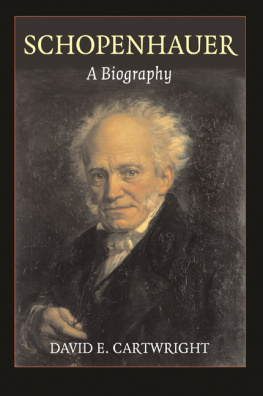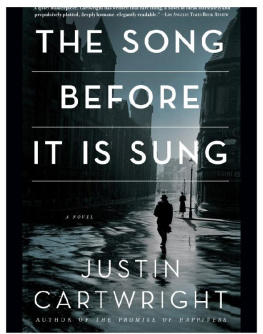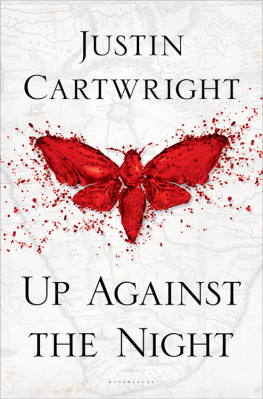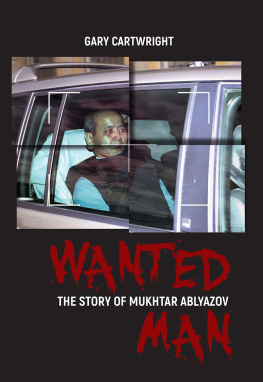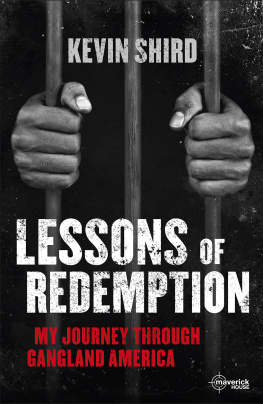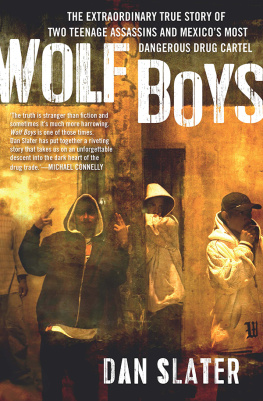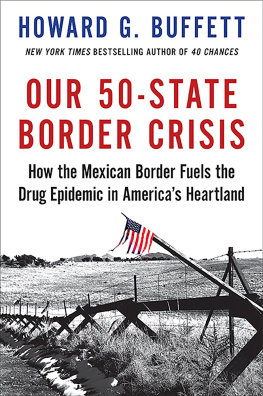DIRTY DEALING
DIRTY
DEALING
Drug Smuggling on the Mexican Border
& the Assassination of a Federal Judge:
An American Parable

GARY CARTWRIGHT

CINCO PUNTOS PRESS
El Paso . Texas
Dirty Dealing.Drug Smuggling on the Mexican Border and the Assassination of a Federal Judge: An American Parable.
Copyright 1984, 1998 by Gary Cartwright.
First edition 1984 by Atheneum as Dirty Dealing: A True Story of Smuggling, Murder, and the FBIs Biggest Investigation. Second edition 1998 by Cinco Puntos Press under the current title.
All rights reserved. No part of this book may be used or reproduced in any manner whatsoever without written consent from the publisher, except for brief quotations for reviews. For further information, write Cinco Puntos Press, 701 Texas Avenue, El Paso, TX 79901; or call (915) 838-1625.
Library of Congress Cataloging-in-Publication Data
Cartwright, Gary, 1934-
Dirty dealing : drug smuggling on the Mexican border and the assassination of a federal judge : an American parable / by Gary Cartwright.
p. cm.
Originally published: New York : Atheneum, 1984.
ISBN 978-1-933693-89-7 (trade paper)
1. CrimeTexasEl PasoCase studies. 2. SmugglingTexasEl PasoCase studies. 3. MurderTexasEl PasoCase studies.
I. Title.
HV6795.E5C37 1998
364.15230976496dc21
98-11320
CIP
Cinco Puntos Press would like this edition of Dirty Dealing to go out in memory of Phyllis Cartwright whose encouragement and input were vital to us during the publication of the second edition of this book.

Book design and typesetting
by Cinco Puntos Press with help from Rose Hill.
Lifted from the lovely design by Vicki Trego Hill of Trego-Hill Publicatons.
Cover design by Paco Casas of Blue Panda Design.
CONTENTS
For Malcolm McGregor
AUTHORS NOTE
For the most part, the conversations reported in this book were taken from the governments original unedited transcripts of wiretaps. Though the transcripts were greatly reduced before the two trials, the discrepancies between the versions submitted by the government and the defense, where they were considered important, are noted in the text. Conversations reported in this book that were not part of the official evidence came from interviews with the participants.

REQUIEM FOR
ROBIN HOOD

THE CRIME
OF THE CENTURY

THE FALL OF THE
HOUSE OF CHAGRA
1

On the night before he was murdered, Lee Chagra flew home to El Paso flushed with the euphoria a gambler feels when he believes his luck is changing. Lee had been in Tucson trying a case for most of the past two weeks, and the verdict had been sublime: in a highly publicized multicount bank-fraud indictment, Lee had walked his man on every count. It was his most important victory in monthsand his most profitable. It was three days before Christmas, 1978; when the Friday-night plane began its approach over the Upper Valley and through the Pass, he caught a glimpse of the lighted Christmas star on the slope of Mount Franklin.
1978 had been the worst year of Lee Chagras life. Worse than 1973the year the federal government indicted him on a trumped-up marijuana-trafficking charge in Nashville and nearly destroyed his law practice. Worse even than the chain reaction of disasters in 1977the year one of his brother Jimmys planes crashed trying to take off from a makeshift field in Colombia with a load of marijuana, an episode that foreshadowed the doom of the entire Chagra family. The shock waves of the crash and Jimmys abortive rescue foray hit the front pages of newspapers across the Southwest at the precise time that Lee was making his own headlines, first with his successful defense of an associated ring of smugglers in Oklahoma, and then with his running courtroom battles with federal judge John H. Wood, Jr., and chief prosecutor James Kerr. The judge and the prosecutor were convinced that Lee Chagra was more than a good criminal attorney; they believed that he was, in fact, a master criminal, the boss of an elaborate gambling and drug-smuggling operation that stretched from El Paso to Miami to Boston. Reports leaked to newspapers by agents of the Drug Enforcement Administration (DEA) hinted that Lee Chagra was a key figure in the Mafia, a Lebanese godfather with ties to such well-known organized crime fighters as Joe Bonanno, Sr., Raymond Patriarca, and Anthony Tony the Ant Spilotro. These reports turned out to be false, but by the time they were corrected Lee Chagra was dead, and so was Judge John Wood.
Lee had always lived on the edge of respectability, goading the El Paso establishment by defending hardened criminals, consorting with known drug smugglers, and cultivating his image as the Black Striker, the terror of the casinos of Las Vegas. Through it all, he had somehow clung to the central fact in his lifehe was a topflight criminal attorney. But the years of fast living were catching up. His practice had foundered, not just because of the rumors but because he had lost his passion for the law, lost his edge. He had run up huge gambling debts and become addicted to cocaine. His life was peopled with shysters, thugs, and killers, andif the truth were knownLee himself had become little more than a highly paid functionary in Jimmys inchoate gang of smugglers. Thats what really hurtLee had become one of Jimmys drones.
For months Lee had been unable to shake the feeling that something uncontrollable had broken loose. The madness peaked in November, when two men in a van sprayed prosecutor James Kerrs car with buckshot and .30-caliber bullets. Federal agents showed up at Lees office the following morning to question him about the unsuccessful assassination attempt. They even confiscated Lees gun collection. Lee was mortified. If someone had tried to kill me, he asked one FBI agent, would you be questioning James Kerr? He already knew the answerthe entire criminal investigative apparatus of the federal government had targeted Lee for extinction, and they wouldnt stop until they got him.
On the plane from Tucson, Lee sat next to a lawyer who worked for one of El Pasos establishment firms in one of the high-rise glass towers that dominated the downtown district of the border city. The lawyer mentioned that he sometimes looked down at the office complex that Lee was remodeling and experienced pangs of envy. Youve got everything I always dreamed of having, the lawyer said. Lee snorted with pride. The other lawyer couldnt appreciate the irony, but until that moment Lee had always envied


